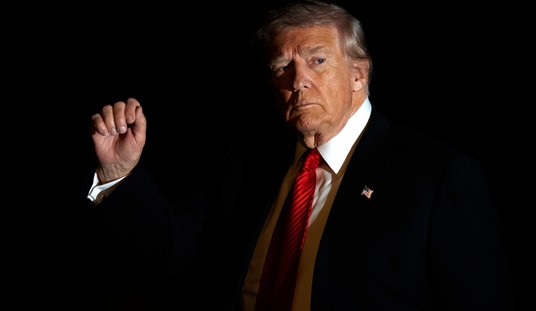Thanks to the Tweeter In Chief, the internet is abuzz today with talk of wiretapping, McCarthyism, FISA courts and Russian spying. The problem is, Trump fires off flares he knows will get his base frothing at the mouth and in the end, it winds up giving cover to the Obama administration. Clouded up, is the possibility the United States government might have monitored the Trump campaign and any contact it had with the Russian government.
There are several points I want to touch on on this fiasco:
1. Is it plausible to believe or even consider the Obama administration weaponized the power of the federal government against their political opponents? Yes. We know this because the IRS targeted conservative groups for higher scrutiny when applying for tax-exempt status. The Justice Department, with the blessing of President Obama, searched through the phone records of the Associated Press. Also, the Justice Department named Fox News reporter James Rosen as an unindicted co-conspirator in a case involving The Espionage Act. Using that authority, the Justice Department monitored his visits to the State Department, trace his phone calls, read his personal emails and labeled him a “flight risk” so they would not have to inform him of the surveillance.
2. Is there any evidence Donald Trump’s phones were tapped in Trump Tower during the campaign? No. Trump gets himself into trouble with such wild accusations. CNN said the allegations are “false.” but that is a weak characterization. We don’t know it is false. However, we do know there is no evidence for these claims. A spokesperson for Barack Obama said neither Obama or the White House order any wiretaps. Of course, they didn’t. They don’t have the authority to do it, so the “denial” is an easy one to make. That doesn’t mean it is not true. Even Obama hack Jon Favreau cautioned the media on how to report when he tweeted:
I'd be careful about reporting that Obama said there was no wiretapping. Statement just said that neither he nor the WH ordered it.
— Jon Favreau (@jonfavs) March 4, 2017
Still, the accusation by Trump even had his staff scratching their heads.
3. Did Paul Ryan confirm Trump’s charge in his interview with Fox News reporter Bret Baier? No, not at all. I’m sorry, but I am going to disagree with my colleague, Streiff, on that strongly. Paul Ryan’s responses may raise eyebrows but to suggest he confirmed Trump’s accusations has no merit. Remember, Donald Trump, accused President Obama of tapping his phones. Even if it turns out the FISA warrant was issued, it had nothing to do with tapping Trump’s phones. Julian Sanchez talks about it in this piece after saying what I did in Point 2 about the President lacking the authority to order electronic surveillance personally:
Rather, the allegation made by various news sources is that, in connection with a multi-agency intelligence investigation of Russian interference with the presidential election, the FBI sought an order from the Foreign Intelligence Surveillance Court authorizing them to monitor transactions between two Russian banks and four persons connected with the Trump campaign. The Guardian‘s report alleges that initial applications submitted over the summer, naming “four members of the Trump team suspected of irregular contacts with Russian officials,” were rejected by the FISC. But according to the BBC, a narrower order naming only the Russian banks as direct targets was ultimately approved by the FISC in October. While the BBC report suggests that the surveillance was meant to ferret out “transfers of money,” the Mensch article asserts that a “warrant was granted to look at the full content of emails and other related documents that may concern US persons.”
Taking all these claims with the appropriate sodium chloride seasoning, what can we infer? First, contrary to what many on social media—and even a few reporters for reputable outlets—have asserted, the issuance of a FISA order does not imply that the FBI established probable cause to believe that any Trump associate was acting as an “agent of a foreign power” or engaged in criminal wrongdoing. That would be necessary only if the court had authorized direct electronic surveillance of a United States person, which (if we credit the BBC report) the FISC apparently declined to do. Assuming the initial applications were indeed for full-blown electronic surveillance orders, then the fact that the FBI supposedly did name the Trump associates at first would suggest they may have thought they had such evidence, but one would expect the FISC to apply particularly exacting scrutiny to an application naming persons associated with an ongoing presidential campaign. An application targeting only foreign corporate entities—especially entities openly controlled or directed by the Russian government—would require no such showing, even if the FBI’s ultimate interest were in communications concerning those U.S. persons.
It’s worth noting here that, contra Trump’s claim on Twitter, none of the articles in question claim that phones were tapped. Indeed, it’s not even entirely clear that the order the FISC finally issued in October was a full-blown electronic surveillance warrant requiring a probable cause showing.
Going off the rails the way Trump so often does harms him more than it helps him. Rather the focus being whether or not a FISA warrant was issued at all, the media gets to spend their time telling everybody Trump made an accusation without evidence. Sanchez makes the point clear as well:
In short, both Breitbart and Trump have advanced claims far more dramatic than anything the public evidence can support. That said, intelligence monitoring—whether direct or indirect—of persons connected with a presidential campaign inherently carries a high risk of abuse, and as Congress moves to launch its own inquiries into the Trump campaign’s Russian ties, it would be entirely appropriate to further scrutinize both the FBI’s initial surveillance and applications and the surveillance that was ultimately conducted for any signs of impropriety.
In other words: Wait and see.
Donald Trump is the President of the United States. He can direct his Attorney General to review the FISA warrants in question and also authorize them to be released to the public. If there was any nefarious behavior on the part of anybody in the Obama administration, then I will join in the calls for their to be hell to pay. Until such time however, everybody should stop jumping to conclusions.














Join the conversation as a VIP Member